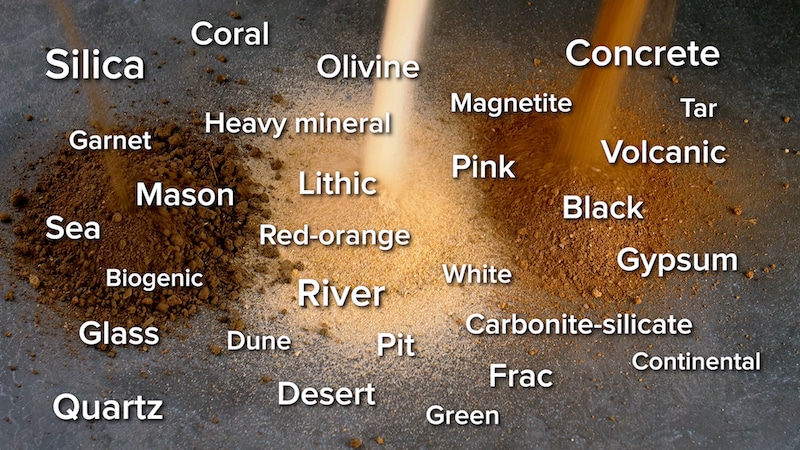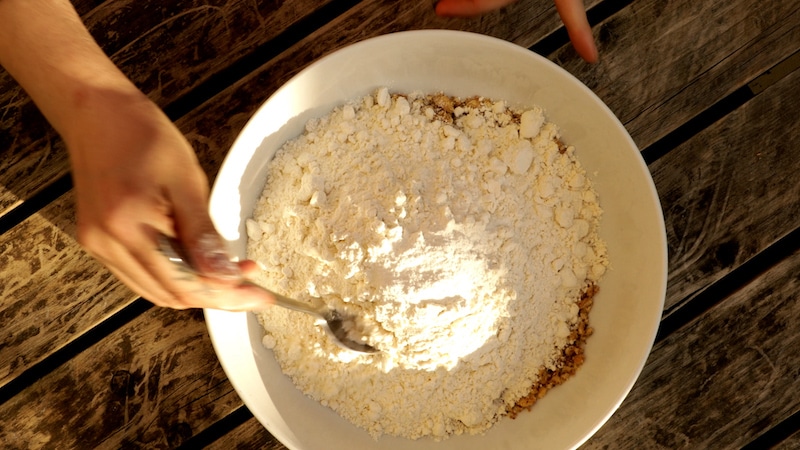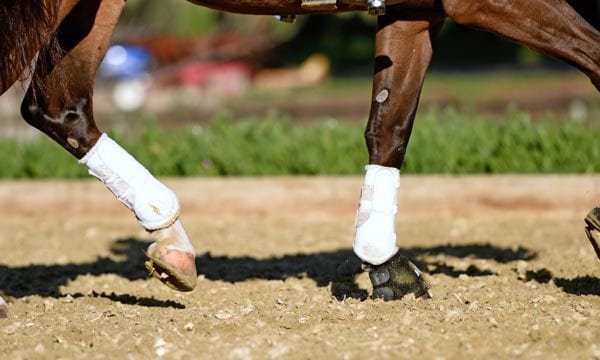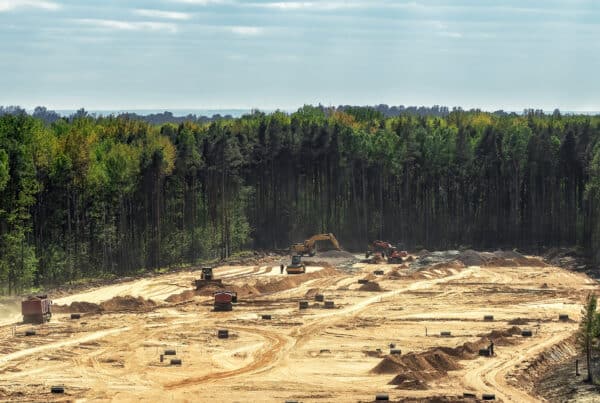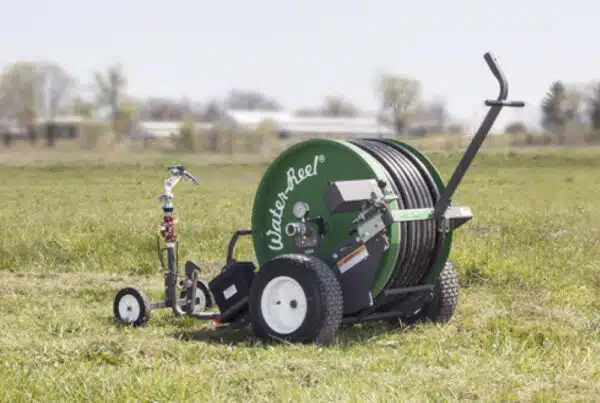If you’re building or upgrading a riding arena, understanding horse arena footing is essential. This guide covers everything you need to know about the layers of footing, the importance of choosing the right sand and additives, and why water is a critical part of any riding surface.
What is Horse Arena Footing?
Horse arena surfaces are made up of multiple layers.
- Sub-base: The natural ground beneath your arena
- Base layer: Often hard-packed stone, clay, or specialized systems for drainage
- Footing layer: Typically, a mix of sand and footing additives like fiber, rubber, or textiles
Each layer works together to provide stability, shock absorption, and traction.
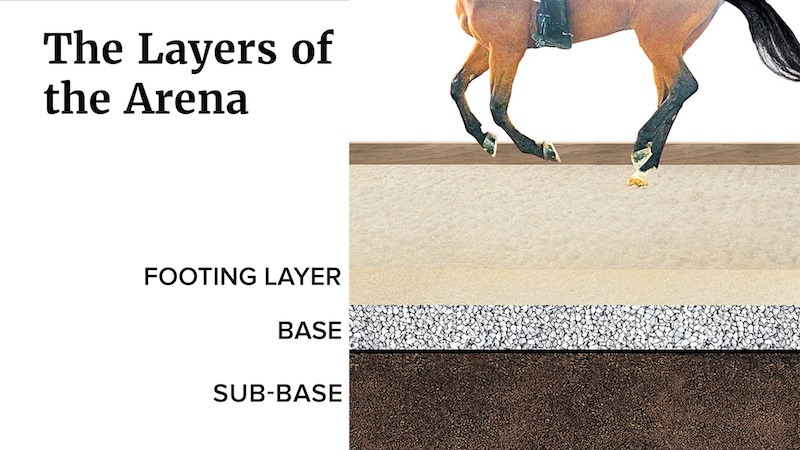
Why is Sand So Important in Arena Footing?
Think of arena footing like a cake recipe: sand is the flour—the main ingredient. Additives like fiber or rubber are the spices that enhance performance.
Here is a basic recipe to mix and blend your sand and footing layer. Usually, only 36 pounds of footing product is mixed into 2,000 pounds of sand. This means that the sand is 98.2% of the total mixture of ingredients and is the most important part of your recipe.
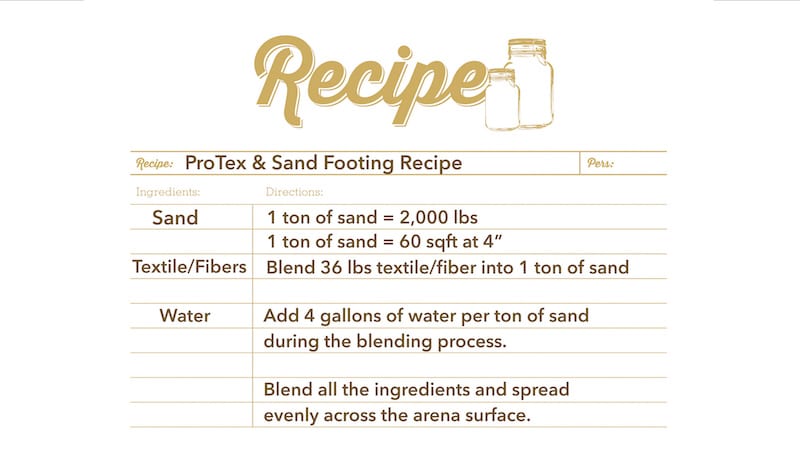
There are over 10,000 types of sand used in the U.S., and many quarries label “horse arena sand” based on previous sales—not science.
Premier Equestrian helps you choose the right sand based on:
- Particle size: Affects drainage and mixability
- Shape & gradation: Impacts compaction and movement
- Mineral hardness: Silica sand made from quartz is ideal for reducing dust and wear
Premier Equestrian can help you choose the right sand for your specific needs.
Like flour in a cake, sand is the most important ingredient in your arena footing recipe.
What Are the Different Types of Footing Products?
Footing additives are designed to enhance the sand—not replace it. No single product works in every arena, which is why we analyze your sand first.
The spices in our cake recipe enhance different flavors. Likewise, footing products are used to enhance specific sand qualities. A common misconception we hear is that installing a popular brand-name footing product guarantees good footing. But not all products are compatible with all sands.
Each of Premier Equestrian’s footing products is formulated to work with particular sand characteristics. That’s why our team works closely with every client to analyze and qualify the sand class before recommending a product.
Footing products can be made of synthetic and organic materials, with synthetics being more durable. Here are common types of footing products:
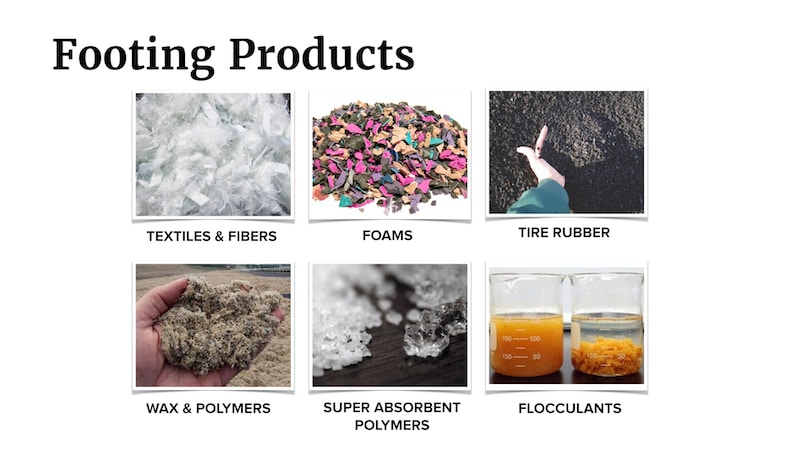
- Textile & Fiber
These retain moisture and create a turf-like surface by stabilizing loose sand. Often called “on top” footing. - Rubber
Ideal for sand that compacts too tightly. Rubber adds cushion and is great where water access is limited. - Additional Additives
Includes waxes, super-absorbent polymers, and flocculants—each offering specific moisture and stability benefits.
Not sure what you need? Contact us for a free consultation or check out our footing comparison videos.
Why is water important for horse arena footing?
Returning to our cake recipe, we need liquid to bind and stick the ingredients together. Water is a key ingredient to maintain high quality footing. It is the same consistency from 33 degrees to 211 degrees. The physics of water cause the molecules to create a network between other substances.
Water not only connects sand particles, it is also crucial in keeping footing products and sand particles bound together.
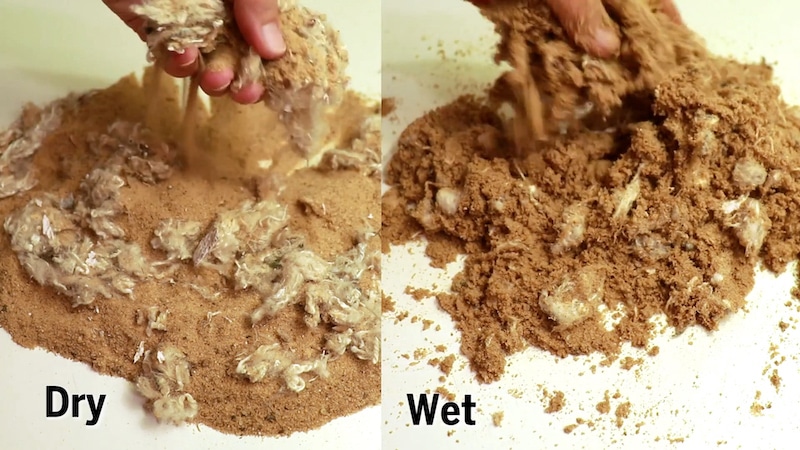
Premier Equestrian footing experts continuously study surfaces, materials, techniques, and horse biomechanics to help you make an informed decision about your arena. Our goal is to evaluate surfaces, educate our customers, and elevate your riding experience and the health of your horses.
Connect with one of our arena specialists to design a surface that’s right for you! Give us a call at 800-611-6109 or contact us about your project.
LEARN MORE ABOUT HORSE ARENA FOOTING

